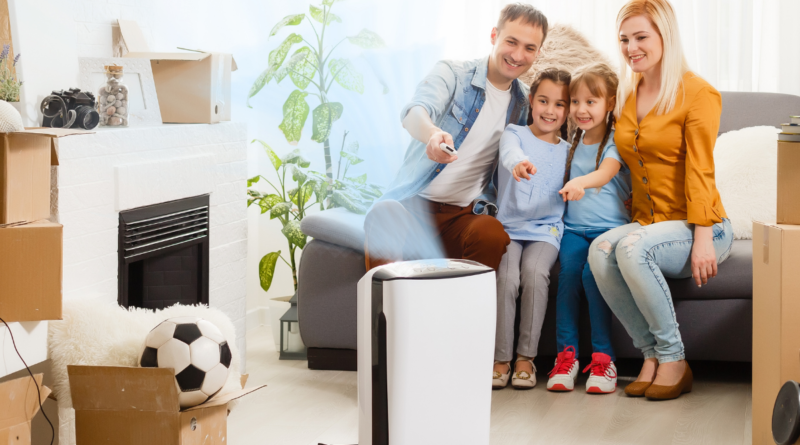Why You Need A Water Air Purifier
The quality of the air we breathe has been steadily deteriorating over the years. Polluted air isn’t just outside homes. The environment within our living spaces may also carry mites, mold, dirt, dust particles, and various other pollutants. If not taken care of, they can cause asthma, different allergies, respiratory issues, and other diseases.
Air Purifiers: A Modern-Day Necessity
The ever-rising air pollution has led to a significant increase in the use of air purifiers. They are of several types including UV (ultraviolet) purifiers, adsorbent purifiers, water-based purifiers, ionic purifiers, HEPA (high-efficiency particulate absorbing) purifiers, and water ionizers among others.
Most of these purifiers use filters to clean up the surrounding air. Water-based purifiers, however, have no filters installed. They employ the natural properties of water to clean, purify and humidify the air, while also diffusing any unpleasant aromas. Let’s take a closer look at this kind of air purifier and see how it’s beneficial to us.
Water Air Purifiers: The Mechanism
As already mentioned, a water air purifier can help rid the air in your home of dust, spores, allergens, and such pollutants. Other than that, you can use it to humidify the environment and diffuse any unpleasant aromas, unlike conventional filter-based air purifiers.
The four steps below indicate the working mechanism of a water air purifier.
The polluted air is sucked in through an inlet vent.
It then swirls through the water-based air purification setup.
The water removes all pollutants from the air pulled into the system.
Clean air is then released back into the surrounding environment.
Can Water Clean the Air Around It?
Most of us aren’t aware of this, but from a molecular perspective, water is quite a sticky substance. This property helps with air cleaning and filtration.
What we all know is that it isn’t good if water puddles start forming and stay that way for long in one place. This is because stagnant water gathers pollutants from its surroundings. However, when you stir or make waves in it, effective filtration can occur.
This is due to the “stickiness” of the water. And by making waves, you’re increasing its surface area so that more water will come into contact with pollutants in the surrounding air and trap them in. As a result, you’ll have clean and filtered air.
Do You Need a Water Air Purifier?
If you’re looking for an effective solution to make the air in your home cleaner, purer, and more refreshing, then a water-based air purifier might just be what you need. It’s especially a good solution for the following people.
- Those who own pets that live inside their homes.
- Those who are regular smokers or often have smokers around their place.
- Those who work in closed, congested, and poorly ventilated spaces.
- Those who suffer from asthma (mild to severe) or have any kind of allergies.
Pros and Cons of Water Air Purifiers
As with anything, a water air purifier comes with certain advantages and disadvantages. Let’s have a look at them in detail.
Pros
- Highly cost-effective compared to the usual filter-based air purifiers.
- Offer a dual function as a purifier and air humidifier.
- Can be used as an oil diffuser.
- Requires easy and affordable maintenance.
- There is no “filter” replacement cost. All you have to do is change the machine’s water from time to time.
- Easy to use; can also be employed for aromatherapy.
- Almost noiseless; can run quietly in the background.
Cons
- Increased humidity in the air may result in the building up of fungi or mold.
- Unlike conventional purifiers, a water-air revitalizer cannot deal with fungi and mold.
- Relatively less effective, especially when weighed up against HEPA filter air purifiers.
- Odor removal isn’t as effective compared to an air purifier with a HEPA or carbon filter.
- Limited utility in general; normally isn’t suitable for large-sized rooms.
- Susceptible to becoming a breeding ground for bacteria and mild viruses.
- Requires frequent cleaning.
Water Air Purifiers: Are They Worth It?
The general view is that water-based air purification units aren’t as good as conventional filter-based options. This is because traditional air purifiers are specifically designed to remove stubborn pollutants that reside in the air in your home.
On the other hand, water-based air revitalizers have the primary goal of cleaning and refreshing indoor air. They do the following things.
Mild Air Purification
Since water is the sole filter within a water-based purifier, it doesn’t have the efficiency or effectiveness of a mechanical purifier. However, if eliminating common indoor air pollutants like dust particles is your aim, then this is a good option. Water air purifiers are also great for enclosed spaces.
Mild Humidifying Effect
While in operation, water air purifiers let out some moisture in the environment. This leads to increased humidity, which makes the air inside more calming and refreshing.
Removal of Unpleasant Odors
The best part of a water air purifier is its ability to diffuse the pleasant aroma of essential oils in the environment. You can add just a couple of drops in the water basin and sit back to enjoy a soothing and stress-relieving home environment.
Final Thoughts
Opting for a water-based air revitalizer ahead of a conventional filter-based option should ultimately depend on your air-cleaning goals. For instance, industrial plants use water to filter the air. However, this is usually accompanied by regular treatment and disposal of the water. That’s because letting it sit may again release the impurities filtered out of the air in the first place.
If mild purification, dust removal, and enhanced indoor humidity are your targets, then it’s a good bet to have a water air purifier. But, in case you’re looking for more thorough cleaning and filtration, perhaps it’s better to go the conventional HEPA or carbon route!

